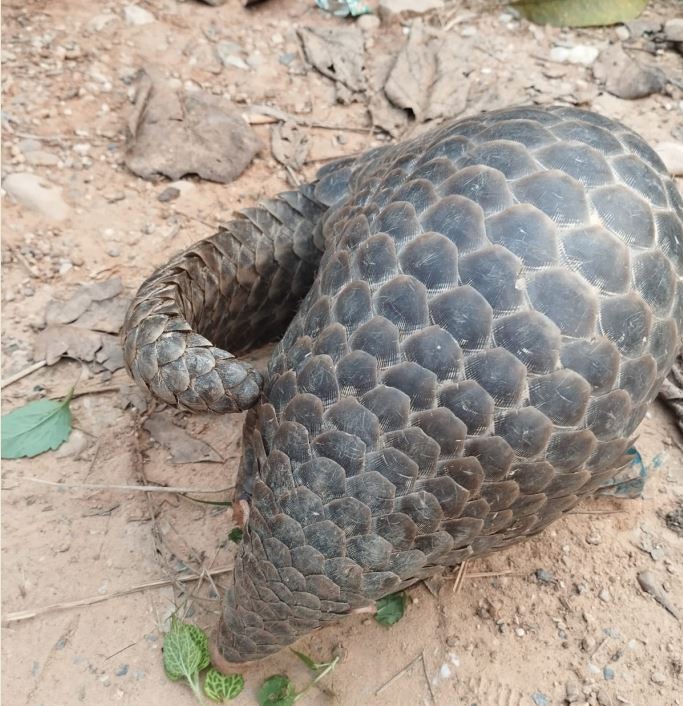- Wednesday, 16 July 2025
Community efforts for pangolin conservation in Hetauda
By Anil Parajuli,Hetauda, Dec. 4: The community has become active in conserving pangolins (Salak), known as farmers' friends. Rescue operations have been carried out to protect pangolins found in various locations, with the help of the forest office and community forests.
Pangolins, which survive by feeding on termites (white ants) found in tree stumps, face threats to their existence. Community-level initiatives have emerged to protect this endangered species.
Recently, a 9 kg adult black pangolin (Chinese pangolin) was found by local Purnima Bhandari in Hetauda Sub-Metropolitan City-5. The pangolin was rescued and sent for conservation.
Kedar Gautam, office secretary of Chuchhekhola Community Forest Users Group, Hetauda-6, shared that rescued pangolins are taken to the pangolin park in Hetauda-17 for conservation. “Whenever a pangolin is found, the community informs us. We then visit the site, coordinate with the forest office and transfer the rescued pangolin to the park within the Chuchhekhola Community Forest,” Gautam said.
He added that awareness has increased among the local community and people now promptly report sightings of pangolins. With a growing understanding of the need for conservation, community participation in protecting pangolins has risen significantly.
Pangolins rescued from Hetauda Ward Nos. 5, 6, 11, and 17, as well as Makwanpurgadhi Rural Municipality and neighbouring districts Sindhuli and Dhading, are being conserved in the pangolin park at Chuchekhola Community Forest.
There are currently 20 pangolins, including 18 black pangolins (Chinese pangolins) and two Indian pangolins, which were rescued from various locations.
According to Basanta Raj Gautam, Division Forest Officer of Makwanpur, pangolins are peaceful and shy mammals found throughout the district. They help loosen the soil and do not harm crops, making them friendly to farmers. The National Parks and Wildlife Conservation Act lists pangolins as protected wildlife.
Under the National Parks and Wildlife Conservation Act, 1973 (Section 26(1)), hunting, capturing, trading or transporting pangolins is punishable by a fine of Rs. 500,000 to Rs. 1 million or imprisonment of five to 15 years, or both. Killing or consuming pangolins results in imprisonment of up to 10 years or a fine of up to Rs. 1 million or both.
Among the eight species of pangolins globally recognised as rare, black pangolins (Chinese pangolins) and Indian pangolins are found in Nepal's forests. Despite being known as farmer-friendly wildlife, pangolins are targeted for their meat and scales, believed to have medicinal properties and are illegally trafficked to China and Vietnam.
Of the 400 community forests in Makwanpur, pangolins have been spotted in about 100. Chuchekhola and Rani Community Forests in Makwanpur are actively campaigning to prevent poaching and trafficking while focusing on pangolin conservation.

















